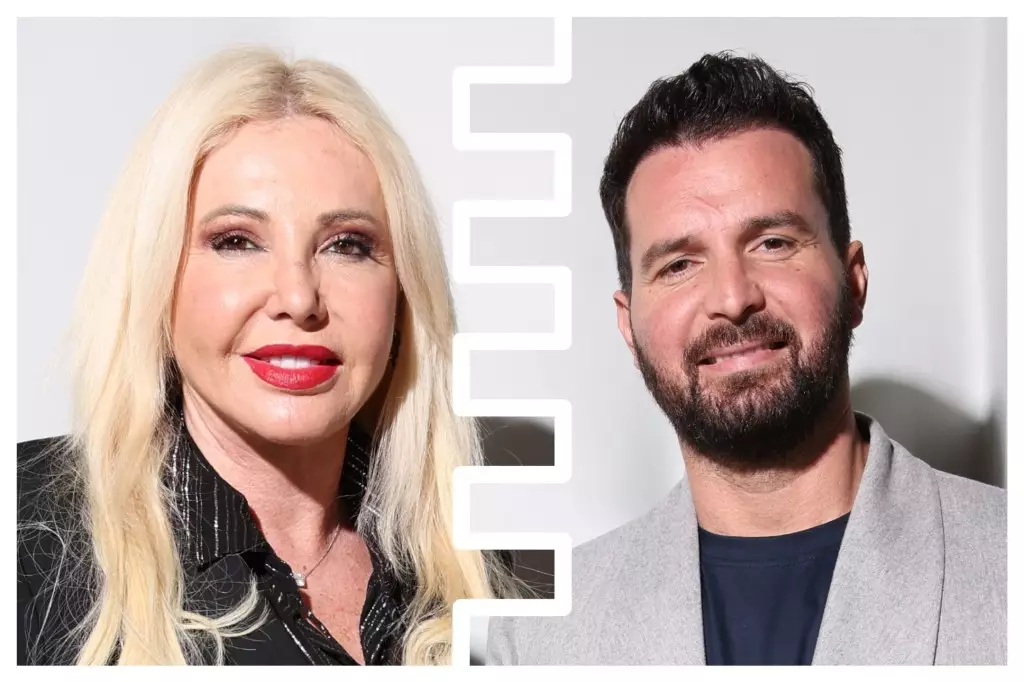The entertainment industry is no stranger to disputes and disagreements, but the recent fallout between Monika Bacardi and Andrea Iervolino arguably stands as one of the more dramatic splits in recent memory. The dissolution of their joint venture, Iervolino and Lady Bacardi Entertainment (ILBE), has ignited a series of public confrontations, legal battles, and accusations that underscore the challenges inherent within artistic collaborations. This article seeks to dissect the events and implications surrounding this contentious situation.
The most recent chapter in Bacardi and Iervolino’s saga unfolded during a shareholders meeting for ILBE. In a groundbreaking session held after Iervolino’s announcement of his departure from the company, shareholders took definitive steps, including initiating legal action against Iervolino. Legal ramifications from business partnerships can usher in a daunting series of challenges, and this meeting proved to be a pivotal moment where those in power decided to cut ties with their former CEO while implementing new strategies to protect their remaining assets.
The decision to rebrand the company to Lady Bacardi Media S.p.A., along with the involvement of the prestigious Italian law firm Pedersoli Gattai, illustrated the gravity of the situation and the heightened mistrust between the two parties. The rebranding itself signifies a move not only to dissociate from Iervolino but also to steer the company towards a new identity after such a public fallout.
At the heart of the dispute is a series of allegations that Bacardi has made against Iervolino. She claims that he attempted to merge ILBE with Tatatu—a social media platform of which he holds a 96% ownership stake—an action perceived as a serious conflict of interest. Bacardi’s concerns revolve around the notion that such moves could be economically detrimental to ILBE, threatening to siphon off resources and intellectual properties for Iervolino’s benefit at the expense of their joint endeavors.
Iervolino, on his part, vehemently denies these accusations, suggesting they stem from personal animosity rather than facts rooted in business integrity. He has characterized the claims as unrealistic and reflective of a distorted narrative aimed at undermining his reputation. This bitter exchange highlights how personal relationships can risk spiraling into public warfare, especially in an industry driven by innovation and partnership.
It is noteworthy how both parties have opted for a legal route to defend and assert their positions. Iervolino has sought not only to counter Bacardi’s allegations but has also filed his own defamation complaint. Meanwhile, Bacardi’s faction has taken measures to legally reclaim supposed misappropriated funds related to Tatatu projects, showing they are serious about seeking accountability.
This legal posturing opens a dialogue about how partnerships can become fraught with tension and mistrust, where every decision is under scrutiny. The involvement of lawyers and legal terminology within the entertainment landscape posits significant ramifications for creative processes and future collaborations. It also signals a shift from personal partnerships to institutional battles that require extensive resources and time to navigate.
With the company undergoing substantial changes, including a revised Board of Directors and the strategic withdrawal from market trading, ILBE is poised for a transformation. Appointing new leadership presents an opportunity for Bacardi’s company to redefine its direction, values, and artistic pursuits moving forward. Yet, such changes cannot erase the lingering effects of the crisis that unfolded.
The industry is watching closely as both parties engage in their respective endeavors, and how ILBE adapts will serve as a case study in navigating post-partnership challenges. The outcome of this tumultuous split could shape not only their futures but also signal how investors and stakeholders approach collaborative efforts within the creative arts.
The Bacardi-Iervolino saga encapsulates a broader narrative about power dynamics, personal relationships, and the consequences that come with them. Going forward, one may wonder whether trust can be rebuilt, or if this ultimately marks a permanent rift in an industry that thrives on collaboration.

